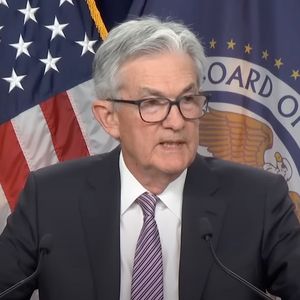The post Crypto News: Saylor Slips Plan to Take U.S. Digital Assets from $1 Trillion to $590 Trillion appeared first on Coinpedia Fintech News MicroStrategy founder and Bitcoin advocate has proposed a digital asset policy that could strengthen the US dollar, reduce national debt, and position the U.S. as a leader in the global digital economy—boosting businesses, fueling growth, and generating trillions in value. Saylor advocates for a clear framework to regulate digital assets in the U.S. He proposes classifying them into categories like digital commodities (e.g., Bitcoin), digital securities (e.g., stocks), digital currencies (e.g., stablecoins), digital tokens (e.g., utility tokens), NFTs (e.g., unique digital assets), and digital ABTs (backed by physical assets). Additionally, he calls for a system that establishes clear rights and responsibilities for issuers, exchanges, and owners to ensure confidence and legitimacy in the market. Key Proposals for Regulating Digital Assets He explained the opportunity for the U.S. to lead in the digital economy by implementing a strategic digital asset policy. This could strengthen the U.S. dollar, help manage national debt, and position the country as the global leader in digital assets. A strategic digital asset policy can strengthen the US dollar, neutralize the national debt, and position America as the global leader in the 21st-century digital economy—empowering millions of businesses, driving growth, and creating trillions in value. https://t.co/7n7jQqPkf1 — Michael Saylor (@saylor) December 20, 2024 Taking to his X handle, Saylor wrote, “A strategic digital asset policy can strengthen the US dollar, neutralize the national debt, and position America as the global leader in the 21st-century digital economy—empowering millions of businesses, driving growth, and creating trillions in value.” Digital Assets: A Path to Trillions in Value The Bitcoin bull suggests growing the digital currency market from $25 billion to $10 trillion, expanding global digital capital markets from $2 trillion to $280 trillion, and increasing digital asset value from $1 trillion to $590 trillion, with the U.S. dominating these sectors. Additionally, he proposes creating a Bitcoin reserve to generate $16–81 trillion in wealth, supporting the U.S. Treasury and reducing the national debt. By establishing a clear taxonomy, a legitimate rights-based framework, and practical compliance obligations, the United States can lead the global digital economy. A capital markets renaissance fueled by digital assets will unlock trillions in wealth, empower millions of businesses, and solidify the US dollar as the foundation of the 21st-century digital financial system,” the blueprint concluded.




















